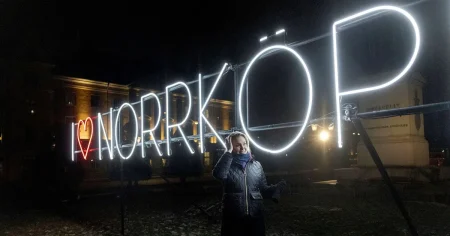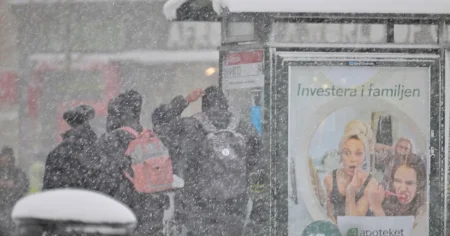Paul Carlbark, a teacher at Ringsjöskolan in Höör, Sweden, found himself in a contentious situation in May 2022 while on duty as a playground supervisor. He intervened in a verbal altercation between a 16-year-old student and a younger student, perceiving the older student to be harassing the younger one. The intervention escalated when the older student shoved Carlbark, prompting the teacher to restrain the student against a locker. This act of restraint led to Carlbark’s dismissal by the school administration and Höör municipality, despite both the police and a court of law confirming that Carlbark had acted within his right of self-defense. The municipality further reported him to the Swedish Schools Inspectorate (Skolinspektionen).
The Skolinspektionen conducted a thorough investigation into the incident. Their findings corroborated the court and police conclusions, declaring that Carlbark’s actions were neither criminal nor a violation of the student’s rights under school regulations. This decision provided Carlbark with a sense of vindication after a prolonged period of professional and personal turmoil. He expressed relief that his actions had been deemed lawful and appropriate, emphasizing his primary goal throughout the process: to ensure that other teachers feel supported in their workplaces and are not subjected to similar unjust treatment.
The municipality, however, maintained its stance that Carlbark had severely breached his duty as a teacher. They argued that he used disproportionate force against the student and deemed him unfit to interact with students in an educational setting. In contrast, the Skolinspektionen interviewed former principals from two schools where Carlbark had previously worked. These principals painted a positive picture of his teaching career, stating that he had an impeccable record with no prior incidents and was highly regarded by both colleagues and students. They described him as a competent and empathetic teacher who listened attentively to his students. This positive feedback further bolstered Carlbark’s claim of unjust dismissal.
The legal proceedings surrounding the incident revealed a nuanced perspective. Carlbark was reported for assault by the student, but the charges were dropped by the prosecutor, citing self-defense. Conversely, the student involved was convicted by the Lund District Court for threatening a public official, namely, Carlbark. The court’s judgment highlighted the rapid unfolding of events, concluding that Carlbark lacked sufficient time to consider alternative actions and was therefore justified in using a reasonable degree of force in response to the student’s initial aggression. The Swedish Child and School Ombudsman supported this view, stating that school staff are not only permitted, but sometimes obligated, to intervene physically to prevent harm to another student, within the boundaries of self-defense and their duty of care.
Despite being cleared of wrongdoing by multiple independent bodies, including the police, the court, the Schools Inspectorate, and the Child and School Ombudsman, Carlbark faced difficulty securing a new teaching position. He shared an experience of being the most qualified applicant for a teaching role, with positive references and a clear criminal record. However, he was ultimately not offered the position. Carlbark speculated that his outspoken nature and willingness to challenge authority might have deterred potential employers. He suggested that some schools might be hesitant to hire someone who has publicly challenged their previous employer, fearing potential future conflicts.
Carlbark has since channeled his experience into writing a book, documenting the events, his frustration, and the broader implications of the incident for teachers’ rights and workplace support. He believes his case highlights a systemic issue, emphasizing that many teachers face similar situations where they are unsupported by their employers when facing threats or violence in the workplace. He aims to raise awareness about these issues and advocate for stronger support systems for teachers. The municipality, meanwhile, stated that they had not yet reviewed the Skolinspektionen’s decision, which was issued on December 5th, and therefore could not offer any comment. This delayed response further underscores the communication challenges and bureaucratic hurdles that Carlbark encountered throughout his ordeal.














